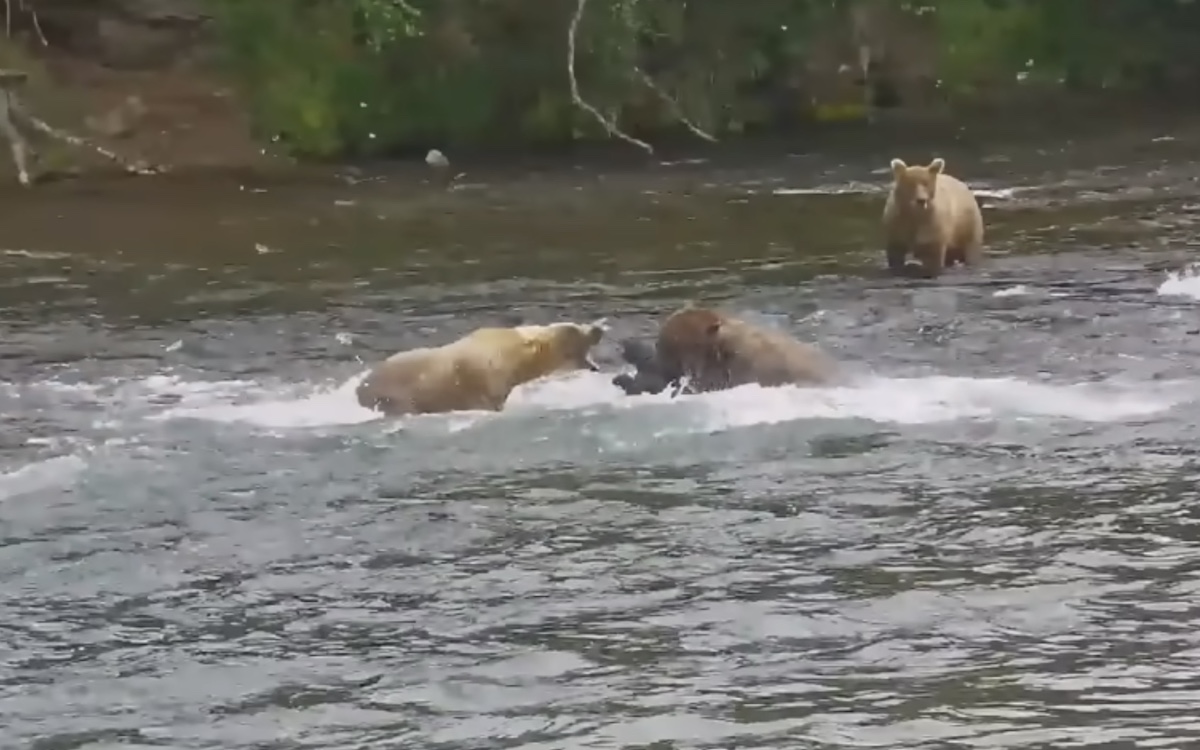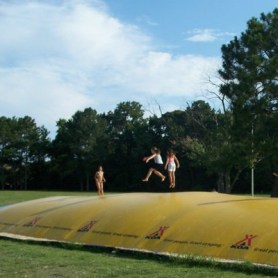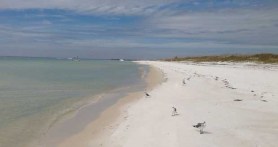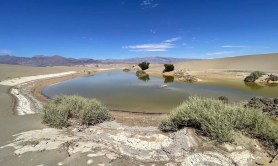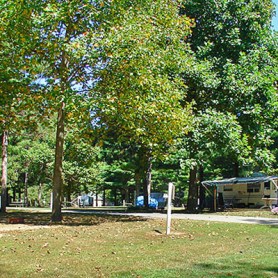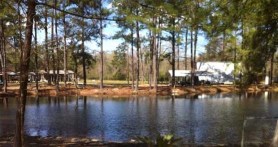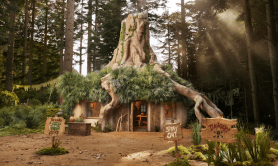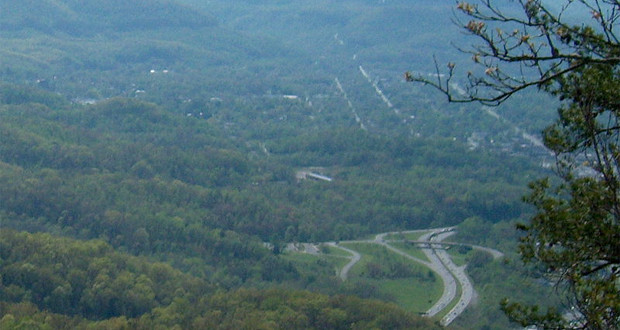

If you are feeling adventurous on your next trip to Cumberland Gap National Historic Park stay in one of the 5 backcountry camping sites. Camp Kentucky caught up with Carol who gave us some insights on what do do while at the park, the great day trips and what campground to stay in while backcountry camping in Cumberland Gap National Park.
Videos by Outdoors with Bear Grylls
Carol’s Favorite Thing To Do In The Park
The parks visitor center where exhibits chronicle the rich history of the Gap. Behemoth, six-foot wide diameter trees, representative of the old growth forest that once dominated the area, tower in the visitor center lobby.
Carol’s Favorite Campsite
With the forest floor carpeted heavily in ferns, the White Rocks campsite is a winner.
Learn About Backcountry Camping in Cumberland Gap National Historical Park
How long have the back country campsites been around?
Five backcountry campsites located in Cumberland Gap National Historical Park were opened in 1959.
What are the most popular activities in the park?
Sightseeing is indeed high on the list. A four mile long drive, accessed from the park’s visitor center, leads to the Pinnacle Overlook, from which folks have a commanding view into Kentucky, Tennessee and Virginia and into the historic Cumberland Gap itself. On clear days, the Smoky Mountains are visible, a view of almost 100 miles. As the Cumberland Gap was the first doorway to the west through which Daniel Boone and almost 300,000 pioneers journeyed, many visitors are drawn to the park as they delve deeply into their family’s genealogy. With the National Park Service having restored the Cumberland Gap, visitors can now walk a 1.2 mile round way hike into this historic passageway. 85 miles of trails provide visitors the opportunity for an hour long jaunt, an all day adventure or an overnight excursion into the backcountry. Forest denizens, including black bear, bobcat and white tailed deer call the park home. Wildlife sightings are frequent. A chance sighting of elk is also possible.
Where is Cumberland National Historical Park located? What are some other attractions in the area worth checking out?
Cumberland Gap National Historical Park is located at the junction of Kentucky, Tennessee and Virginia and is located in all three states. Wilderness Road State Park, one of Virginia’s newest state parks, is located on Hwy 58 seven miles east of Cumberland Gap. Visitors to the state park can explore the recreated Martin’s Station, the last outpost that the pioneers could stop at before traveling through the Gap. Pine Mountain State Resort Park, Kentucky’s oldest state park, is located 15 miles north on Hwy 25E in Pineville, KY. This Kentucky state park trumpets a beautiful lodge, cabins and a restaurant overlooking the mountains. Folks can also visit the Abe Lincoln Museum, located on the campus of Lincoln Memorial University in Harrogate, TN, a ten minute drive from the campground. The museum hosts a wonderful collection of Lincoln memorabilia.
 Hikers can also access the Cumberland Trail, one of Tennessee’s newest state parks and a linear park at that, in Cumberland Gap. When completed, the Cumberland Trail will extend 300 miles from its northern terminus in Cumberland Gap National Historical Park to its southern terminus at the Chickamauga Chattanooga National Military Park located on Signal Mountain just outside Chattanooga, Tennessee. Though presently under construction, visitors to Cumberland Gap will also be able to access Kentucky’s Pine Mountain State Scenic Trail which when completed, will connect Breaks Interstate Park with the national park. This 110 mile long trail will cross 4 counties. Both the Cumberland Trail and the Pine Mountain Trail are key links in the Great Eastern Trail, America’s newest long distance hiking trail stretching from Alabama to New York through nine states and with 1,800 miles of footpaths.
Hikers can also access the Cumberland Trail, one of Tennessee’s newest state parks and a linear park at that, in Cumberland Gap. When completed, the Cumberland Trail will extend 300 miles from its northern terminus in Cumberland Gap National Historical Park to its southern terminus at the Chickamauga Chattanooga National Military Park located on Signal Mountain just outside Chattanooga, Tennessee. Though presently under construction, visitors to Cumberland Gap will also be able to access Kentucky’s Pine Mountain State Scenic Trail which when completed, will connect Breaks Interstate Park with the national park. This 110 mile long trail will cross 4 counties. Both the Cumberland Trail and the Pine Mountain Trail are key links in the Great Eastern Trail, America’s newest long distance hiking trail stretching from Alabama to New York through nine states and with 1,800 miles of footpaths.
What are the campsites like? How far of a hike is it to get to the different campsites?
All campsites are located on top of Cumberland Mountain. Gibson Gap is located on the west central end of the park; Hensley Camp, Chadwell Gap and Martins Fork are all centrally located; and White Rocks is found at the eastern end of the park. While campsites are free, a backcountry permit, available at the park visitor center, is required. Reservations can be made up to three months in advance.
 All backcountry campsites are equipped with food storage pulleys and cables. A minimum three to five mile hike is required to access any of the backcountry campsites. Many of the trails leading to these sites require a 2000 foot climb in the first two miles of the hike. A primitive cabin, located at Martin’s Fork, can also be reserved up to three months in advance. Cost per night is $10.00. The cabin has three wooden bunks, a fireplace, and a picnic table inside.
All backcountry campsites are equipped with food storage pulleys and cables. A minimum three to five mile hike is required to access any of the backcountry campsites. Many of the trails leading to these sites require a 2000 foot climb in the first two miles of the hike. A primitive cabin, located at Martin’s Fork, can also be reserved up to three months in advance. Cost per night is $10.00. The cabin has three wooden bunks, a fireplace, and a picnic table inside.
If you could only spend one hour in the park, what would you do? Definitely plan on driving to the Pinnacle Overlook for a breathtaking view. But definitely squeeze in the second hour for a stop at the park visitor center where exhibits chronicle the rich history of the Gap. Behemoth, six-foot wide diameter trees, representative of the old growth forest that once dominated the area, tower in the visitor center lobby. Inquisitive, energetic youngsters can don pioneer clothing and touch bear and other animal pelts. High definition orientation films showcase the park’s incredible history and array of resources.
Cumberland Crafts, of the Southern Highland Craft Guild, is also located at the visitor center. The shop showcases crafts from the nine states representing Appalachia and hosts craftspeople, who through demonstrations share with visitors their expertise with hand tools, native materials and lots of ingenuity. Especially on weekends, one might be able to chat with a broom maker, a weaver or a candle stick maker. Or perhaps one might be able to see as birdhouses are built from wood and bark. Stand in awe and watch an artist transform glass rods into dazzling, glistening glass beads. It will seem as though magic has governed the entire process. Or stretch that hour into two and visit Gap Cave, a grand underground cathedral. The cave is highly decorated with stalagmites, stalagtites and flowstone formations. Call the park visitor center (606-246-1075) for tour times and reservations.
If you could spend just 1 night in one of the back country sites, which campsite would you choose – and why?
With the forest floor carpeted heavily in ferns, the White Rocks campsite is a winner. From the campsite, it’s just a short hike to the White Rocks Overlook. With its extraordinary view into Virginia’s Powell Valley, one will want to sing “Climb Every Mountain.” The face of the White Rocks also supports lichens and moss normally found only in the far north.

